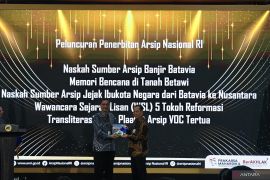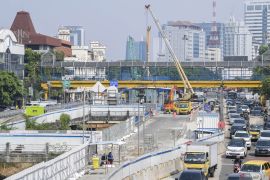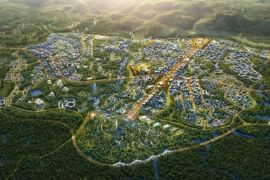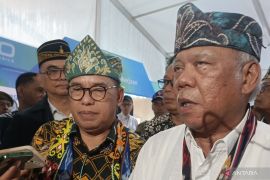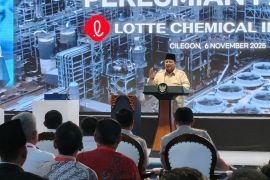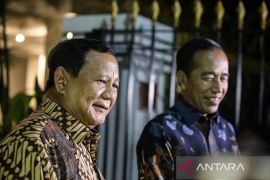The definitive location will be announced if the comprehensive studies on it are completedJakarta (ANTARA) - The definitive location of Indonesia's new capital will be announced after all comprehensive studies on its relocation have been completed and problems related to it have been resolved, President Joko Widodo (Jokowi) has said. "The definitive location will be announced if the comprehensive studies on it are completed," he told journalists on the sidelines of his visit to Hotel Indonesia Roundabout's MRT Station here Thursday.
Indonesia's capital city would be relocated to Kalimantan Island, Jokowi has confirmed.
National Development Planning Minister Bambang Brodjonegoro also seemed reluctant to reveal the name of the province which would become the nation’s new capital.
In May this year, President Jokowi had visited Soeharto Hill area of Kutai Kartanegara District in East Kalimantan Province, and Gunung Mas District area of Central Kalimantan Province.
The total cost of moving the state capital would be nearly Rp466 trillion, the National Development Planning Agency (Bappenas) has estimated.
"Of the total cost of Rp466 trillion, the required state budget is only around Rp30.6 trillion," Bambang Brodjonegoro said June 15, 2019.
Based on the estimates compiled by Bappenas, the Rp30.6 trillion from the state budget will be used to build state palaces and military/police strategic buildings as the principal functions, green open spaces as helping functions, and for land acquisition.
Aside from the state budget, the Government and the Business Entity Cooperation scheme worth Rp340.6 trillion and private sector funds worth Rp95 trillion will complete the total amount of Rp466 trillion required for the transfer of the state capital.
Funds from the Government and Business Entity Cooperation will be utilized for the construction of government buildings (legislative, executive, judiciary), official housing (multistorey and house-to-house for State Civil and Military/Police Apparatus), educational facilities (on the elementary, middle, and high school level), health facilities, correctional institution, infrastructure such as roads, electricity, telecommunications, water supply, drainage, waste treatment, and sports facilities.
Moreover, funds from the private sector will be used for building educational facilities (at the university level) and health facilities.
"So the majority of us are cooperating with the private sector and SOEs, the state budget is only a trigger. We will also use existing assets," he revealed.
Reporter: Desca, Rahmad Nasution
Editor: Bambang Purwanto
Copyright © ANTARA 2019

